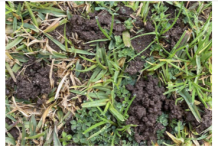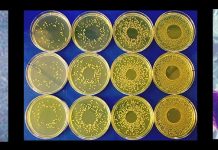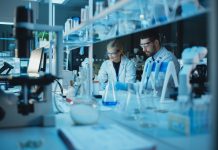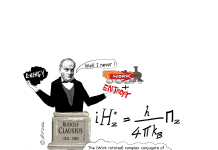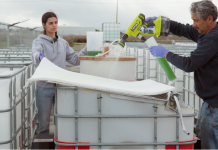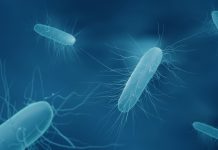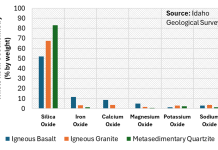Open Access Government produces compelling and informative news, publications, eBooks, and academic research articles for the public and private sector looking at health, diseases & conditions, workplace, research & innovation, digital transformation, government policy, environment, agriculture, energy, transport and more.
Home 2024
Archives
Developing mathematics teacher confidence through increasing understanding of mathematics
Dr. Jennifer Holm, from Wilfrid Laurier University, walks us through the importance of developing mathematics teacher confidence through increasing understanding of mathematics.
Building resilience in Canadian vineyards through grapevine selections
Jim Willwerth, Assistant Professor and Researcher at Brock University, Canada, discusses how to build resilience in Canadian vineyards through grapevine selections.
The importance of earthworms for soil health
In this article, Lynette Abbott from The University of Western Australia, highlights the importance of earthworms for soil health.
What now? Climate leadership after COP29
Richard Beardsworth from POLIS at the University of Leeds continues a discussion on climate leadership, this time focusing on post-COP29 outcomes.
Communicating science: The “significance” of statistics
Statistical significance and scientific importance are distinct, equally valuable aspects of communicating the significance of statistics in scientific research.
The role of host condition and environment on infection outcome
Brian P. Lazzaro from Cornell University discusses his research on the factors influencing immune response and infection outcome, drawing on powerful experimental systems, such as Drosophila melanogaster as a model host, to gain a deeper understanding of foundational biological processes.
Exposomics: A shift in biomedical research with potential to improve human health
Recent advances in exposomics offer an exciting opportunity to comprehensively catalog human exposures and link them to biological responses determining health and disease. Pamela J. Lein, Ph.D. from the University of California, tells us more.
Cell biology research: The mystery of cholesterol homeostasis
Kazumitsu Ueda, PhD from Kyoto University, WPI-iCeMS, unveils the mystery of cholesterol homeostasis in this cell biology research focus.
Is civic engagement a potential path to decolonizing education?
Is civic engagement a potential path to decolonizing education? Here, Geraldine Balzer from the University of Saskatchewan provides an intriguing response.
The impact of bible use on human flourishing among U.S. Military members
The impact of Bible use on human flourishing among U.S. military members is detailed by Sung Joon Jang and Byron R. Johnson from Baylor University and Pepperdine University.
Purposive physics
“The Universe doesn’t care about us. It can’t since it has no purpose!” This is what we are told. But is it true? How would we know either way?
Helping biodiversity conservation with modelling
Professor Guillaume Blanchet from Université de Sherbrooke discusses how modelling can aid in the conservation of biodiversity.
Building integrated photovoltaics in practical use: The 5GSOLAR thin film device perspective
Maciej Sibiński from Tallinn University of Technology, examines building integrated photovoltaics in practical use, from the 5GSOLAR thin film device perspective.
Five tips to implement self-compassion for healthcare workers
Self-compassion is not a cure-all for systemic challenges within the health system, but it can enhance resilience, social support, and self-efficacy among healthcare workers, ultimately improving their quality of life in the workforce.
Primate exposure to anthropogenic pollutants: An overlooked conservation concern
Michael Wasserman of Indiana University discusses research on wild primate exposure to endocrine disruptors, such as pesticides, flame retardants, and phytoestrogens.
Carbon capture surface: CO2 removal technology
Beth McDaniel, JD, Partner President from Reactive Surfaces Ltd. LLP, introduces us to Carbon Capture Surfaces, a CO2 removal technology that checks all the boxes.
Solutions for better sleep
Dr Lianne Tomfohr-Madsen highlights sleep health equity research to inform best practices and policies to improve the sleep of all Canadians.
Philosophy: Environmental risk policy and public law
John Martin Gillroy is Professor of Philosophy, Law & Public Policy at Lehigh University. Here, he navigates philosophy with a special focus on environmental risk within the realms of policy and public law.
An ancient therapy modernized for Clostridioides Difficile therapy
Clostridioides difficile is a type of bacteria that often affects people who have been taking antibiotics. Glenn S. Tillotson of GST Micro LLC explains how live biotherapeutic products have shown promise as a safe and effective treatment to help restore the normal gut microbiome.
Soil parent material: The role of earth’s skin on forest health
Soil is complex, posing challenges for measurement and management at scale. Mark Kimsey from the University of Idaho highlights the importance of monitoring soil properties in forest management. This has resulted in digital tools that help align management practices with the characteristics of soil parent material and climatic conditions.



